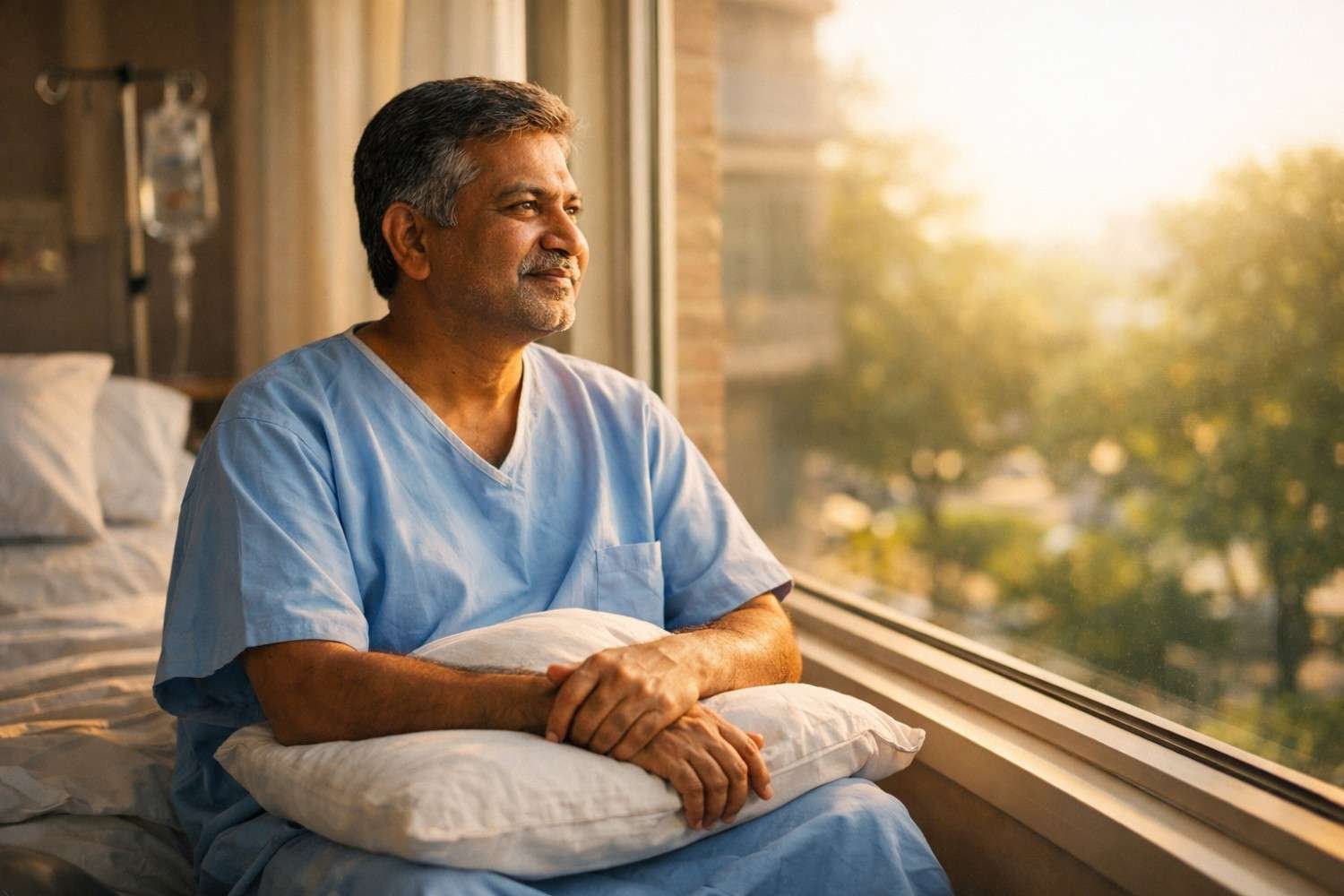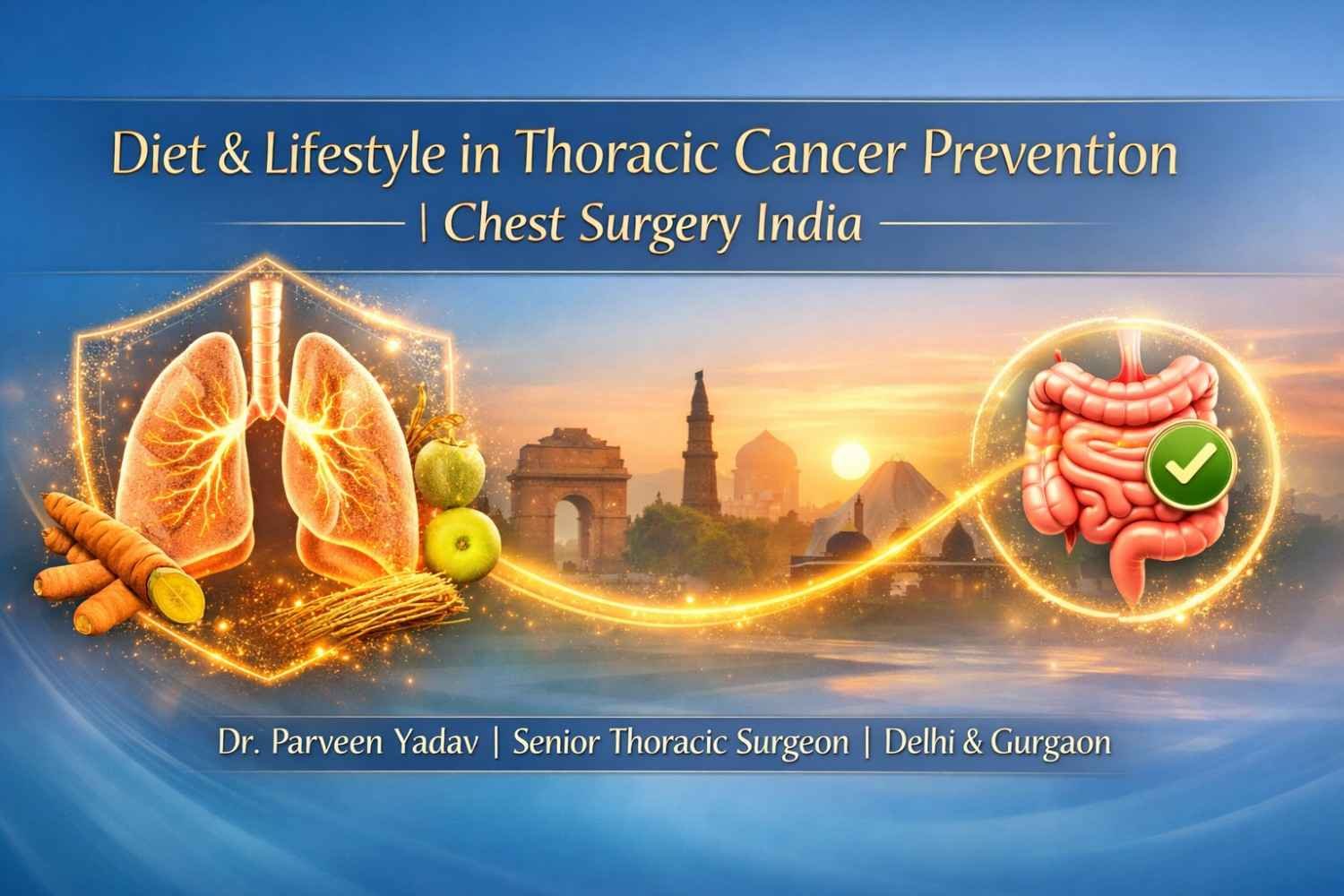

Let's discuss about the Growing Interest in Cannabis for Medical Purposes. In recent years, the use of cannabis for medical purposes has garnered significant attention worldwide. Many are curious about its efficacy in treating esophageal cancer. This blog explores the possible benefits and risks of using cannabis as part of esophageal cancer treatment in Gurgaon and Delhi, mainly focusing on patients.
Esophageal cancer originates from the cells lining the esophagus, the muscular tube responsible for carrying food from the throat to the stomach. It is a severe disease that requires immediate attention from specialised healthcare providers. In Gurgaon and Delhi, patients can access some of the leading esophageal cancer specialists at the forefront of advanced treatment options.
In recent years, the use of cannabis in cancer care has garnered significant attention worldwide. Known for its therapeutic properties, cannabis is increasingly being explored as a complementary treatment for various cancer-related symptoms. This article delves into the potential benefits and risks of cannabis in cancer care, with a focus on its application in treating patients in Gurgaon and Delhi.
Cannabis contains active compounds known as cannabinoids, the most notable being tetrahydrocannabinol (THC) and cannabidiol (CBD). These compounds interact with the body's endocannabinoid system, which regulates various physiological processes, including pain, mood, and appetite.
Latest Blog: GERD vs Esophageal Cancer Understanding Differences & Treatment Options
1. Pain Management:
One of the most well-documented uses of cannabis in cancer care is for pain relief. Many cancer patients experience chronic pain due to the disease itself or as a side effect of treatments such as surgery, chemotherapy, and radiation. Cannabis, particularly strains high in THC, can help alleviate this pain, improving the quality of life for patients.
2. Nausea and Vomiting Control:
Chemotherapy-induced nausea and vomiting (CINV) are common and distressing side effects for cancer patients. THC has been shown to have antiemetic properties, helping to reduce nausea and vomiting and allowing patients to maintain better nutrition and hydration.
3. Appetite Stimulation:
Loss of appetite and significant weight loss are prevalent issues among cancer patients. Cannabis, especially strains high in THC, can stimulate appetite, encouraging patients to eat and maintain their strength during treatment.
4. Mood and Mental Health:
Cancer diagnosis and treatment can lead to anxiety, depression, and emotional distress. CBD, a non-psychoactive component of cannabis, has been found to have anxiolytic and antidepressant effects, helping to improve the overall mood and mental well-being of cancer patients.
1. Interaction with Other Medications:
Cannabis can interact with other medications commonly used in cancer treatment, potentially altering their effectiveness. Patients must consult their healthcare providers to avoid adverse interactions.
2. Psychological Effects:
High doses of THC can cause psychological effects such as paranoia, anxiety, and hallucinations, especially in individuals with a predisposition to mental health disorders. Careful dosing and medical supervision are essential to mitigate these risks.
3. Legal and Regulatory Issues:
The legal status of medical cannabis varies by region. In India, the use of cannabis for medical purposes is heavily regulated, and its legality can differ between states, including Gurgaon and Delhi. Patients and healthcare providers must navigate these regulations carefully.
Research on the medical use of cannabis is still in its early stages globally and in India. While growing interest and anecdotal evidence support its benefits, more rigorous clinical trials are needed to establish definitive guidelines. Additionally, the legal framework surrounding medical cannabis in India is complex, requiring thorough understanding and compliance by both patients and healthcare professionals.
Before considering cannabis for esophageal cancer treatment, it's imperative to consult with a specialist. Esophageal cancer doctors and surgeons in Gurgaon and Delhi are equipped to guide their patients through the complexities of integrating cannabis with traditional treatment plans.
For patients considering cannabis as part of their esophageal cancer treatment, it is crucial to consult with a specialist. In Gurgaon and Delhi, Dr. Parveen Yadav, an esteemed esophageal cancer surgeon at Chest Surgery India Hospital, recommends a thorough evaluation of each patient's specific circumstances and medical history before integrating cannabis into treatment protocols.
Consulting with experts who understand esophageal cancer and the impacts of cannabis is essential for effective care. By remaining informed and consulting the right medical professionals, patients can make educated decisions about including cannabis in their treatment plans, potentially improving their quality of life during their battle with esophageal cancer.
1. Could you please clarify the symptoms of esophageal cancer?
Symptoms include difficulty swallowing, unintentional weight loss, chest pain, and persistent cough.
2. Can cannabis cure esophageal cancer?
Cannabis is not a cure for esophageal cancer, but it may help manage symptoms like pain and nausea.
3. What treatments are available for esophageal cancer in Gurgaon and Delhi?
Treatments include surgery, chemotherapy, radiation therapy, and targeted drug therapy, with options varying based on the specific case and available facilities.
4. Is the use of cannabis legal for medical purposes in Delhi?
Cannabis for medical use in India is heavily regulated, and its legality can vary. Consult a healthcare provider for legal advice.
5. How can I find an esophageal cancer specialist in Delhi?
Patients can either seek referrals from their primary care physicians or search online for hospitals and oncology centres specialising in cancer treatment in Delhi.
6. What are the possible adverse effects of using cannabis while undergoing cancer treatment?
Risks include potential drug interactions, psychological effects, and the challenge of determining the appropriate dosage without professional guidance.
Dr. Parveen Yadav is a highly recommended surgeon or specialist for esophageal cancer treatment in Gurgaon, Delhi. He specialises in minimally invasive and robotic thoracic onco surgery. He has been recognised for 17+ years as the best chest surgeon in Gurgaon, Delhi, for his expertise in treating chest-related (Chest Surgery) ailments, such as Esophageal (Food Pipe Cancer), Lung, Tracheal (Throat), Chest wall tumours, Mediastinal Tumors, Empyema, and Bronchopleural Fistula cancer. With a focus on precision and innovation, he is dedicated to offering exceptional care to his patients, utilising advanced techniques to ensure optimal outcomes.

18+ Yrs Exp | 5,700+ Thoracic & Robotic Cancer Surgeries
Dr. Parveen Yadav is a Director and Senior Consultant in Thoracic and Surgical Oncology, specializing in minimally invasive and robotic lung and esophageal surgeries, with advanced training from AIIMS and Tata Memorial Hospital.
View Full Profile Pain After Thoracic Surgery: Tips for Smooth Recovery
Pain After Thoracic Surgery: Tips for Smooth Recovery
 Diet & Lifestyle for Thoracic Cancer Prevention | Dr. Parveen Yadav
Diet & Lifestyle for Thoracic Cancer Prevention | Dr. Parveen Yadav
 Robotic Thoracic Surgery: How Da Vinci Technology is Revolutionizing Chest Procedures
Robotic Thoracic Surgery: How Da Vinci Technology is Revolutionizing Chest Procedures
Struggling with pain after chest surgery? Dr. Parveen Yadav shares expert recovery tips, causes of shoulder pain, PTPS signs, and what your discharge sheet won't tell you.
Discover how diet, breathing exercises & daily habits help prevent and recover from thoracic cancer. Expert insights from Dr. Parveen Yadav, Chest Surgery India
Discover how Da Vinci robotic surgery is transforming chest procedures in Gurgaon. Less pain, faster recovery & expert care by a certified thoracic surgeon
Copyright 2026 © Dr .Parveen Yadav all rights reserved.
Proudly Scaled by Public Media Solution!